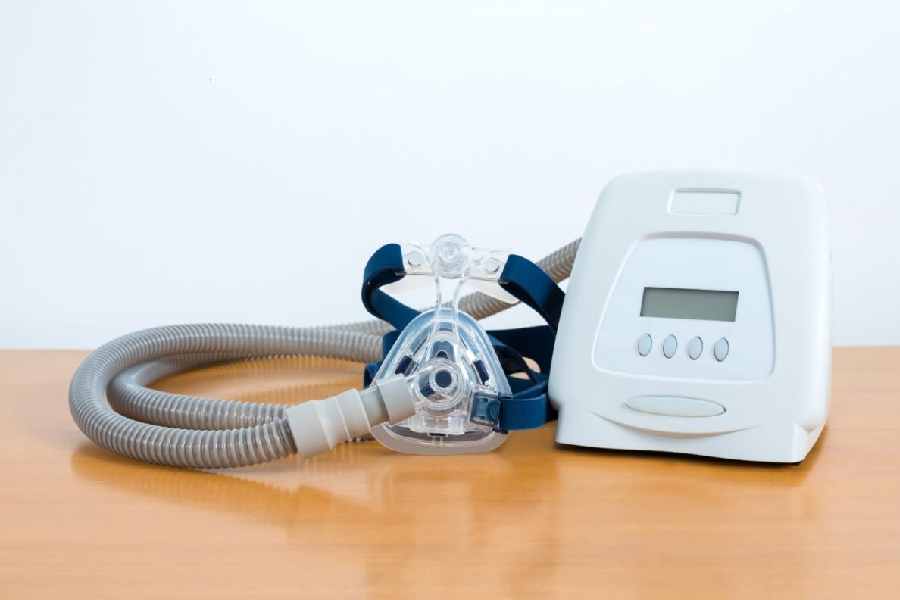The overhaul of GST rates has renewed hope for families of patients with rare diseases, as life-saving medicines, diagnostic tests and essential medical devices are set to become more affordable.
Doctors, parents and advocacy groups say the reduced tax burden will ease the financial strain of treating rare conditions — many of which require medicines that cost several lakhs or even crores annually.
Rare disease treatments often rely on extremely expensive drugs, with families typically turning to crowdfunding or government aid to meet costs. A drop in GST rates is expected to ease this process. The medicines that are comparatively cheaper and purchased directly by families are also likely to be more reasonably priced.
For such families, out-of-pocket treatment expenses remained high. But once the GST is slashed, breathing appliances such as BiPAP or CPAP, and diagnostic and psychometric test prices will reduce, too.
A good BiPAP machine, something that doctors advise parents to keep at home, costs between ₹70,000 and ₹1 lakh, said Moumita Ghosh, the mother of a girl diagnosed with spinal muscular atrophy-II (SMA-II), a condition that leads to progressive muscle weakness and wasting. “Any GST rate cut for BiPAP machines will help families,” she said.
A BiPAP is a device that helps with breathing. It is noninvasive ventilation.
Price pinch
Nitisinone, a drug used to treat hereditary tyrosinemia type 1 (HT1), costs about ₹2.5 lakh a year. Trientine, used in Wilson disease, costs between ₹2 lakh and ₹2.5 lakh, and Miglustat, for Gaucher disease, costs between ₹3 lakh and ₹6 lakh a year. Risdiplam, used for Spinal Muscular Atrophy, costs ₹72 lakh a year.
“Most families depend on crowdfunding or government assistance to buy the medicines. If the cost of a medicine reduces, the total cost can be crowdfunded faster,” said Prasanna Shirol, co-founder and executive director of the Organisation for Rare Diseases India.
Union finance minister Nirmala Sitharaman on Wednesday announced the reduction of GST from 12 per cent to nil on life-saving drugs and medicines, and from 5 per cent to nil on three life-critical drugs for the treatment of cancer and rare diseases. The GST on all other drugs and medicines has been reduced from 12 per cent to 5 per cent.
More funds
The cut in GST rates for medicines is expected to increase the purchasing power of government-supported treatment centres and improve long-term access to medication. The additional funds can now be used in distributing medicines for a longer duration, said a genetic counsellor.
Centres of excellence such as SSKM Hospital in Calcutta, which provides care for around 800 rare disease patients from across eastern India, will benefit from the revised rates. Officials say the price reduction will allow them to stretch funds further and continue distributing medicines without interruption. At present, many centres face sudden shortfalls in funding, which lead to abrupt halts in treatment.
“If a medicine costs less because of the GST rate cut, the centres will spend less to buy a medicine. The additional funds can now be used to provide medicines for a longer period,” said an official at SSKM Hospital.
The National Policy for Rare Diseases, 2021, say that “as the number of persons suffering from individual rare diseases is small, they do not constitute a significant market for drug manufacturers to develop and bring to market drugs for them”. Government support becomes essential for their treatment, said doctors.
Sources said the distribution of medicines from these centres stops suddenly if funds are unavailable. This leads to a break in treatment.
“A 5-7 per cent drop in GST rates for medicines that cost lakhs will make a lot of additional funds available with the centres,” said a doctor.
Test trouble
Besides drugs and equipment, diagnostic procedures also form a major part of rare disease treatment.
Psychometric and genetic tests, which cost ₹8,000 to ₹12,000 per session, are essential for evaluating patients and planning therapy. These tests are sometimes repeated at regular intervals.
Genetic counsellor Dipanjana Datta explained that psychometry results are vital to determine the nature and extent of cognitive or behavioural dysfunction, and are also required for issuing Unique Disability ID (UDID) cards, which allow access to various government benefits.
“A psychometry test is needed to identify why and where the dysfunction is. A child may understand simple commands like ‘bring water’, but cannot follow complex directions, like if someone asks them to bring water, takeanother bottle, pour the water into it, and then keep thecontainer in another place. Why does this happen? A psychometry test can determine,” said Datta.
The GST on psychological aptitude testing tools has been brought down from 12 per cent to 5 per cent, making these tests a little more affordable.











